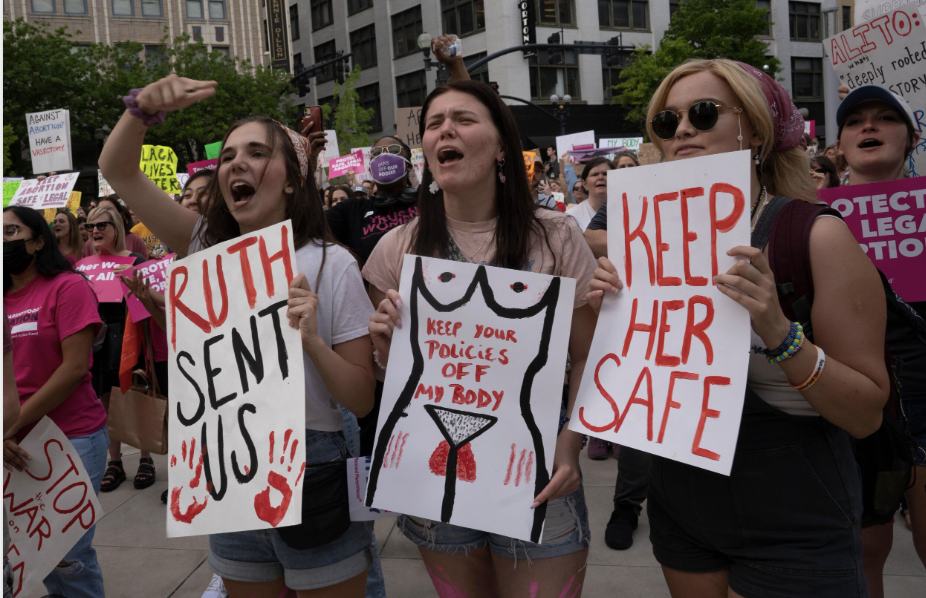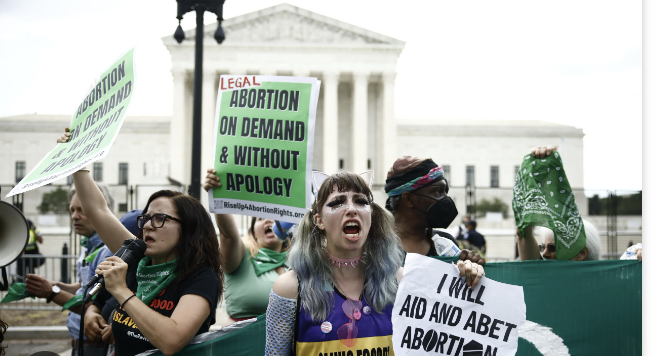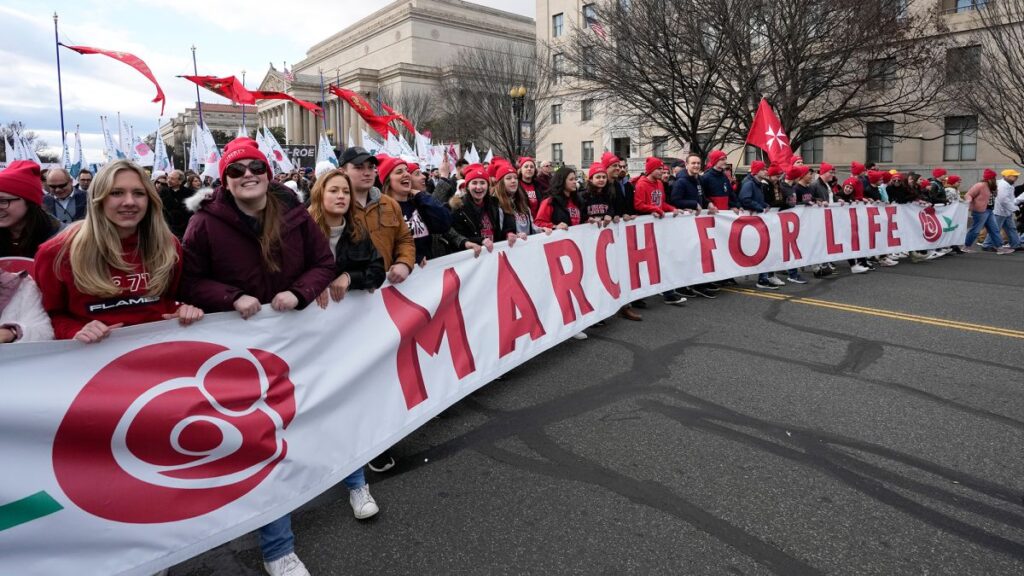
The 50th Anniversary of Roe v Wade (1973) that had the intentions to occur on January 22, 2023, meant to be a day of celebration and hope for a bettering future and have many women gathering together to commemorate the joyous occasion. That opportunity was taken away from many individuals around the United States of America due to the case’s overturning by the Dobbs v. Jackson Women’s Health Organization (2022). The overturning of this case created an uprising within younger and more democratic generations who wish to have had the opportunity to live in a country where the rights provided by the Roe v Wade case were never non-occurring.
The first march in support of Roe v Wade in 1973 had hopes that women would have the right to their bodies through the actions of Jane Roe, otherwise known as Norma McCorvey. These women wanted the same reproductive rights that Roe v Wade highlights to be included in the Constitution, so they rioted and protested. Once the Supreme Court came to the decision to make abortion a constitutional right, many celebrated with annual protests on the anniversary of the case decision. Yet, they knew that even though they were successful in the Roe v Wade case, they had to continue fighting to keep them. Unfortunately, the right to an abortion (across the states) got overturned almost seven months before the 50th anniversary would have occurred.
When the Supreme Court’s decision of Dobbs v Jackson Women’s Health Organization became apparent, more than 200 Women’s March events in about 46 states took place; all which condemned the court’s decision.{3} This ruling leaves the choice up to the individual states to choose whether or not to ban/restrict abortion rights. Thus, this would mean the removal of those rights from the people. A major protest being in Washington D.C. at Freedom Plaza, with thousands gathered in protest of the court’s ruling, brought many together in despair. These Women’s March events, motivate by the recent loss of federal protection, are now dedicated to gaining state’s protections. Although many individuals’ reproductive rights were lost due to the court’s ruling, they still held hope and did not allow fear to intervene with their goals. With their eyes now focused on state politics, many organizations are now trying to educate younger voters and engage them into the ongoing conversations of abortion rights. This is done to initiate them in the discussion for the future of women in the United States.

Every year since 1973, activists in support for abortion rights gathered on Jan.22 for what was once known as “Roe v Wade Day” to celebrate the granted the constitutional rights to abortion. The most devasting component of the Women’s March events is the understanding that many veteran activist cam back out to protest once more. These are the same people that protested pre-Roe for the right to their bodies and thought that they finally achieved that goal, are now protesting once more to regain those same rights.
On what would have been the 50th Anniversary of Roe v Wade, Jan. 22, 2023, dozens of cities rallied in support of the those abortion rights. This was a Women’s March iteration; a protest series that started in 2017 when President Donald J. Trump became president. {1} This protest series followed the annual anti-abortion demonstrations of “March for Life” events, which became a victory rally that celebrated the overturning of Roe. This march showcased more in a pep-rally way, with drummers and people waving banners and flags. With slogans like “I am the Post-Roe Generation” and “Let Life Happen”, these anti-abortion activists celebrated with implications that their fight was still not finished and want a full band on abortion.

As the protestors gather nationwide once again in support for abortion access, a new feeling that does not resemble celebration is created. Instead, painful emotions are being felt: anger, uncertainty, fear, and grief. In the current post-Roe world, many are reflecting on the possibility for reproductive rights and still hold hope for the future. While many are mourning for their loss of reproductive rights, the anti-abortion protestors gather for the annual March for Life event with the theme of “Next Steps: Marching in a Post-Roe America”. {2} The future of Women’s marches are going to resemble pre-Roe protests since it appears we have “moved backwards in time”. While many see the overturning of Roe v Wade as an identification to celebrate, many view it as if we have regressed as a society instead of moving forward. This viewpoint has sparked many to continue fighting for their reproductive rights and others to continue their goal to ban abortion completely. These two opposing sides have their own marches, for their own personal beliefs; but this divide of the country seems like it will continue.
—Shaelynn Grifaldo
Work Citations
{1} Russell, J., & Sasani, A. (2023). Women’s March Holds Nationwide Rallies on 50th Anniversary of Roe. New York Times.
{2} Wolf, Z. (2023). Republicans are now splintering over abortion rights. CNN.
{3} Noor, P. (2023). Women’s March draws thousands across US after Roe v Wade overturned. The Guardian.
This take on abortion brings up a question: why would federal and state legislators continue to make a decision such as in the Dobbs case when, ever since 1973, women have felt not only triumphant, but free over their own body. Reversing a court case is not an uncommon thing, but in a monumental case such as this one, they were doomed to get serious backlash. So, why would the government take this case into their own hands and reverse it after clear knowledge of the ways in which society felt?